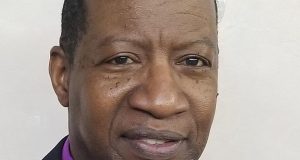By Yvonne Sam
Social and Political Commentator
 It is utterly imperative that teachers/educators fully understand that children begin school at various levels. I am a former secondary school teacher, having taught for almost three decades in the public school system.
It is utterly imperative that teachers/educators fully understand that children begin school at various levels. I am a former secondary school teacher, having taught for almost three decades in the public school system.
I have always had a passion for education, so much so, that my mother, oftentimes, joked that I was teaching from the first day that I could talk and sound words. I remember printing the alphabet, with pride, thanks to my parents, for never letting our young hands, (and by extension fingers) be far from the Vere Foster Copybook.
By the time I reached second grade, I was reading everything I could get my hands on and helping my classmates read as well. Weekly attendance at the public, free library was a must, almost synonymous with breathing. My father was responsible for verification of library attendance, an act that he carried out in a perfunctory manner. Each literary acquisition had to be left on the dining table for his perusal and consequent refusal or proposal.
I have shared my childhood, as I feel it is extremely important for educators to understand that children begin school on various levels. Children develop and preserve information differently. Some students begin school ahead of the pack. As educators, it is our responsibility to ensure that all children, irrespective of their initial academic level, continue to make progress. Unfortunately, most students are not progressing at an appropriate pace .The one-size-fits-all model of instruction does not work for every child.
In order to boost improvement, as educators we must ponder on our stated mission: to educate all children. Not every child will become an astronaut or a mathematician. Not every child is going to be a scientist or doctor. However, every child is born with specific gifts and talents. Hence, it is completely up to us, as parents and educators, to help each child develop those specific talents.
In my family, each of my siblings had a different area of interest. We were all expected to excel in our respective fields, and we did. Success comes in various forms. A successful student is one who is allowed to pursue his/her natural talents, and encouraged to learn the skills needed to be a productive citizen. Had my parents limited my siblings and I to reading and mathematics, we probably wouldn’t have been as successful — in our careers or personal lives.
To improve academic achievement, teachers must primarily be equipped with the skills to recognize the natural talents that support and encourage academic achievement. On a secondary, but nonetheless equally-important note, the educational system must realize that tests only measure a finite set of skills, and that there are skills that exist outside of those measured.
Academic achievement is improved when we recognize the differences in children and embrace them, rather than trying to put every child in the same, square box. Academic accomplishment is enhanced, when parents become the proponent for the needs of their child, beginning from the womb all the way through college graduation and the start of their careers.
Who is responsible for improving academic achievement? Each and every one of us. Yes, all of us. Parents please get engaged, be a voice in your child’s education, go to the parent-teachers’ meetings. Educators, participate in the professional development, take part in the free webinars, read the articles on education in your local newspapers, and be a voice in your child’s education.
It has been said that “the link between academic failure and delinquency, violence, and crime is welded to reading failure. Moreover, we know that rates of illiteracy are inextricably linked to minority populations and communities of color, or the socioeconomically disadvantaged. So what does this all mean? It means that certain households and communities are disproportionately affected in an adverse way.
I therefore urge all members of my community, parents and fellow educators to become more vocal advocates, about the issue of literacy among Black students. The machine is already in motion, as the latest budget has earmarked $135 million, over five years, for cultural outings for students and to improve content offered in school libraries. Our children must be at the center of our nation’s educational priorities.
Aleuta — the struggle continues.
Yvonne Sam, a retired Head Nurse and Secondary School Teacher, is Vice-president of the Guyana Cultural Association of Montreal. A regular columnist for over two decades with the Montreal Community Contact, her insightful and incursive articles on topics ranging from politics, human rights and immigration, to education and parenting have also appeared in the Huffington Post, Montreal Gazette, XPressbogg and Guyanese OnLine. She is also the recipient of the Governor General of Canada Caring Canadian Citizen Award.
 Pride News Canada's Leader In African Canadian & Caribbean News, Views & Lifestyle
Pride News Canada's Leader In African Canadian & Caribbean News, Views & Lifestyle





